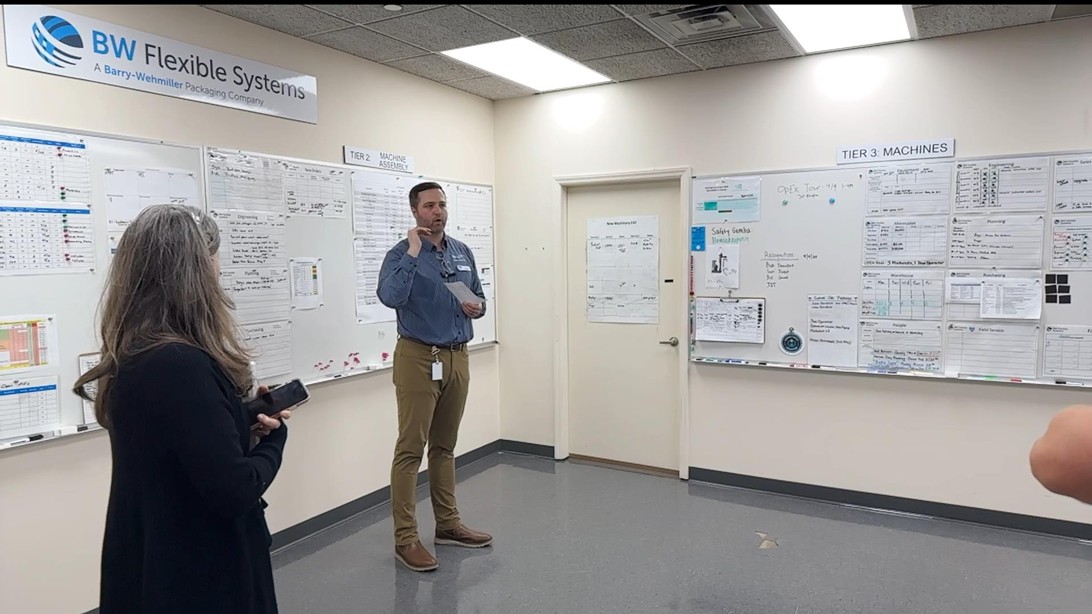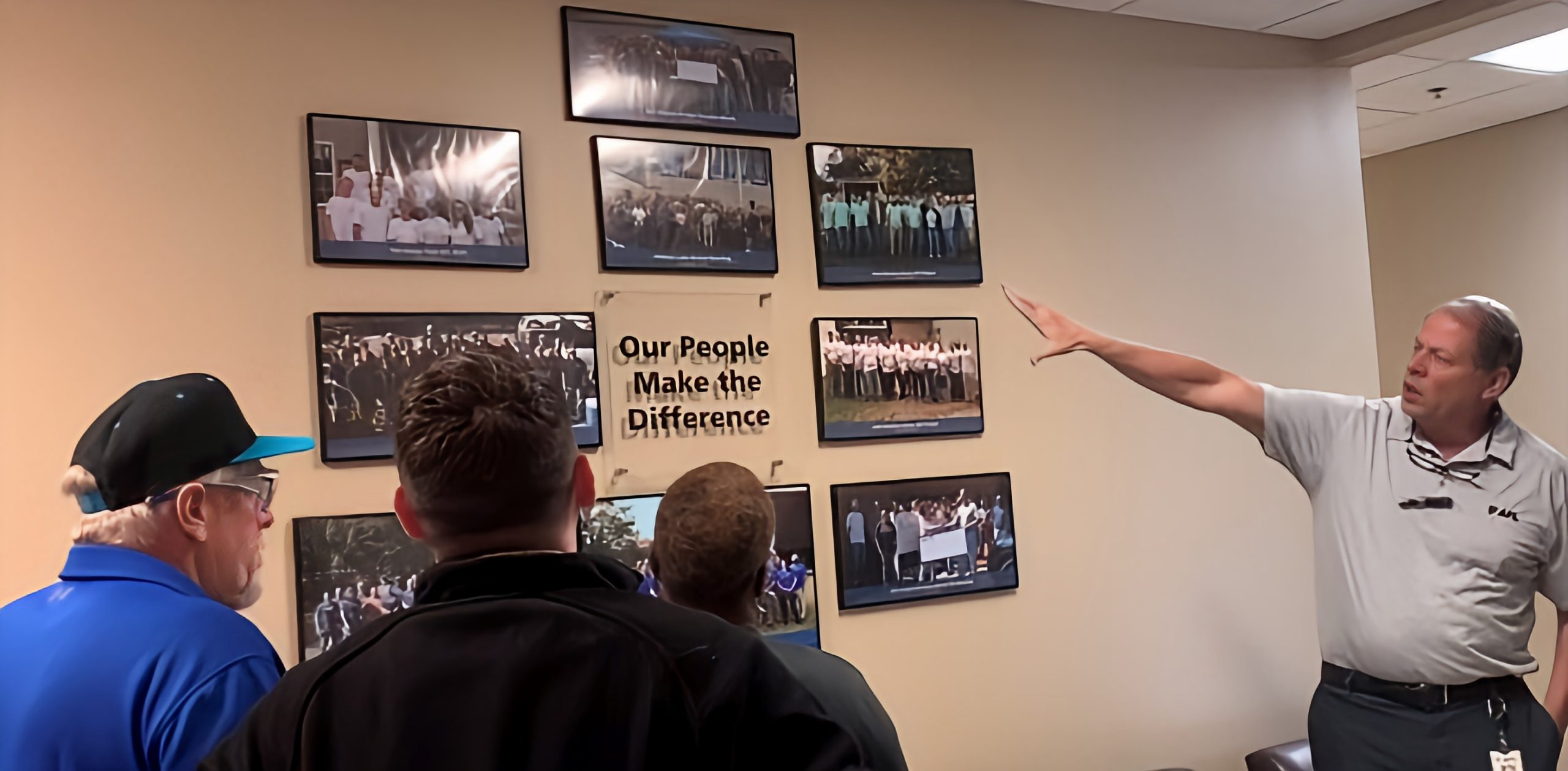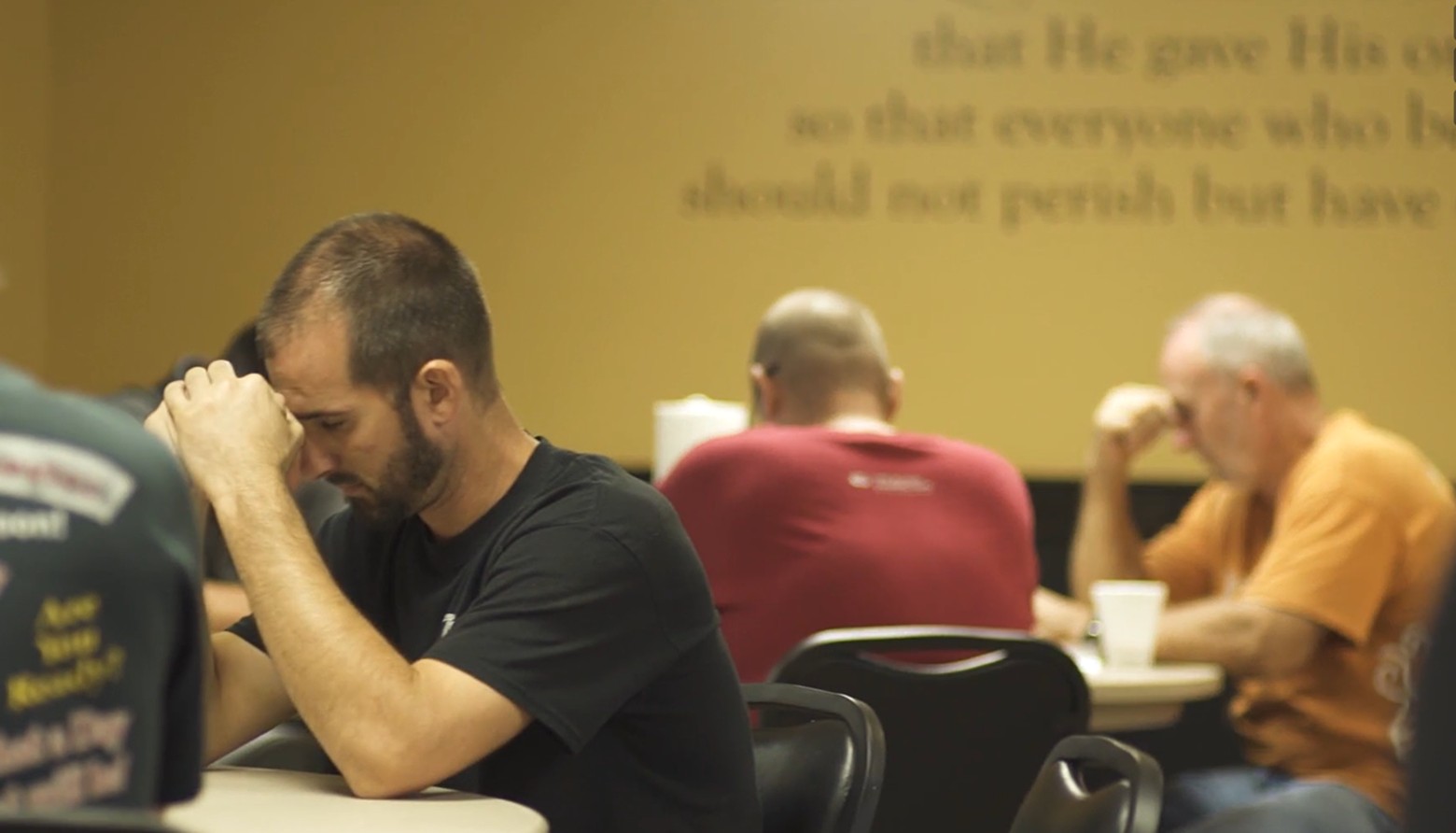By Mike Demos, OpExChange Coordinator for the SCMEP
In early December, I had the privilege of moderating a panel discussion with leaders from three exceptional OpExChange companies during the South Carolina Manufacturing Summit. The focus of our session was a topic of critical importance to manufacturers across the state: achieving and sustaining high employee retention rates.
As the leader of the OpExChange for the South Carolina Manufacturing Extension Partnership (SCMEP) for the past four and a half years – and an active participant for thirteen years prior – I have had the opportunity to visit countless manufacturing sites and witness best practices firsthand. Over the years, I’ve identified a dozen or so companies that consistently demonstrate “world-class” retention rates and, more importantly, cultivate exceptional employee engagement.
For this discussion, I invited leaders from three outstanding organizations that have each hosted OpExChange plant tours recently to showcase operational excellence improvements. These companies also exemplify what it means to create a workplace where employees thrive and choose to stay. Joining me on the panel were:
- Jake Huskey, Site Leader for BW Flexible Systems in Duncan, SC
- Eric Borowicz, General Manager for AFL Conductor Accessories, also in Duncan, SC
- Darris Stoll, President and CEO of Stoll Industries in Abbeville, SC
Over time, I’ve developed a deep admiration and friendship with each of these leaders, not only for their professional achievements but also for their commitment to fostering a positive workplace culture.
The format of the discussion adhered to the interactive and collaborative spirit that defines OpExChange. While I opened with a few targeted questions to kickstart the conversation, the session quickly evolved into a dynamic exchange of insights – not just among the panelists but also with the engaged audience of South Carolina manufacturers. The goal was simple: to share actionable wisdom that other organizations could adapt to enhance retention and engagement within their own teams.
BW Flexible Systems
Jake Huskey serves as the Site Leader at BW Flexible Systems, a facility with approximately 215 employees. This site is part of the Barry-Wehmiller (BW) corporation, a global organization with around 12,000 employees across more than 120 locations, led by CEO Bob Chapman. The Duncan, SC, facility specializes in designing and building custom flexible packaging equipment, including form, fill, and seal solutions. In April 2024, they hosted an OpExChange plant visit to showcase their operations.
The Barry-Wehmiller corporation is prominently featured as an example of effective leadership in Simon Sinek’s book, “Leaders Eat Last: Why Some Teams Pull Together and Others Don’t.” Sinek highlights BW’s “truly human” approach to leadership, emphasizing principles that foster trust and engagement.
During the panel discussion, Jake emphasized that sustaining an engaged workforce begins with leadership – specifically, the example set by those at the top, such as CEO Bob Chapman. “If your top leader isn’t walking the talk, it will hinder the creation and maintenance of a positive culture,” Jake explained. He urged the audience to take note of a key insight: “You cannot motivate another person.” Instead, he elaborated, leaders can create an environment conducive to motivation.
Jake added, “Once you understand that things start to click. People bring their heads, their hearts, and their hands to work. Everyone is fighting a battle you know nothing about. Good leadership starts there – not with metrics or numbers. When you reach their hearts, their heads and hands will follow.”
Reinforcing this philosophy, Jake shared a recurring statement from Bob Chapman: “We are a people company, and the machines we build are a byproduct.” This ethos underscores BW’s commitment to prioritizing people, which ultimately drives their success.
AFL Conductor Accessories
Eric Borowicz has dedicated 25 years to the AFL Conductor Accessories facility, beginning as an Operations Manager and serving as General Manager since 2013. This site, with approximately 150 employees, produces essential components for electricity transmission and distribution. AFL Conductor Accessories exemplifies the collaborative and sharing culture of an OpExChange company. Since joining OpExChange in 2022, they have hosted two plant visits, the first in March of 2022 and the second in May of 2023. Both showcased remarkable operational successes, including their innovative use of data analytics and real-time locating systems to track shop orders. These visits also highlighted their outstanding workplace culture.
Eric attributes their sustained positive culture to his personal connection with employees. “As a General Manager, I walk through the plant multiple times a day, shaking hands with every employee,” he shared. “This is 20 minutes of my schedule that nobody interrupts. There isn’t a single employee here who doesn’t know me or feels afraid to ask me a question.” Eric emphasized the importance of addressing employee concerns directly, ensuring no one takes unresolved issues home. “Because of these personal connections, employees know they can approach me with any problem,” he added.
Honesty and care are at the core of his leadership approach. “I always provide a truthful answer. They might not always like the response, but they know it’s honest,” Eric explained. This transparency fosters trust, which he knows is integral to their culture.
AFL’s positive culture is reflected in their impressive safety record – an extraordinary 25 years without a lost-time accident in their machine shop. Eric credits this achievement to the team’s strong engagement and mutual respect.
When asked about sustaining this culture when he chooses to retire, Eric highlighted the role of the entire leadership team in promoting engagement. He also discussed their rigorous hiring process, where initial interviews focus on technical qualifications and the final interview is with Eric, who will assess cultural fit. “If a candidate doesn’t align with our culture, their credentials don’t matter,” Eric stated, underscoring the team’s commitment to maintaining their values.
Stoll Industries
Stoll Industries, a third-generation, family-owned business in Abbeville, South Carolina, has deep roots in craftsmanship and a legacy of faith-driven leadership. Darris Stoll, a member of the third generation of owners, now serves as CEO. He is continuing the vision that began with his grandfather. In 1969, Grandpa Stoll, a skilled metalsmith moved to Abbeville and began crafting fire screens for his family and neighbors, eventually selling them through a local hardware store. Fast forward 55 years and they now have a network of nearly 2,000 dealers across the United States.
This familial spirit is the cornerstone of Stoll Industries’ culture. They view their operation not just as a factory but also as an extension of their family, incorporating a faith-based approach to leadership. “God has given us this business as an opportunity to touch lives and build relationships,” Darris explained.
When Stoll Industries hosted an OpExChange plant tour in April 2022, their unique culture was on full display. Their break room features Bibles on the tables, and employees are invited to participate in a voluntary 10-minute devotional each morning – on company time. One of their employees shared with me that there is an unwritten motto from their leadership – “Love ‘em, Feed ‘em, Pay ‘em.”
Darris shared that when they encounter production challenges, prayer is often part of the solution-finding process.
In recent years, the company has experienced significant growth, nearly doubling its workforce since the onset of COVID-19. While this growth was a testament to their success, it also highlighted the need for a structured leadership approach to maintain morale and productivity. Darris acknowledged that their good intentions and caring fostered some bad habits with some employees.
To address this challenge, Stoll Industries adopted the Transformational Leadership program developed by Ford Taylor. While not explicitly faith-based, this leadership philosophy aligns seamlessly with their core values and offers practical tools for building trust and accountability. Darris explained that the program is available in two formats: a “plain-glass” version that focuses solely on the principles and training, and a “stained-glass” version that incorporates biblical references to the principles. He emphasized, “When you’re doing what is right, there’s no need to wrap a Bible verse around it.”
One Ford Taylor tool Darris particularly values is the six-step apology process. “Despite our best efforts, we all make mistakes,” Darris acknowledged. “As leaders, we’ve used this process publicly with our team. We admit what we did, explain why it was wrong, and give them permission to hold us accountable.” He described this practice as a powerful way to quickly restore trust within the organization.
By blending their family-centric culture, faith-based values, and practical leadership tools, Stoll Industries has created a workplace where people feel supported, valued, and empowered to succeed. Their approach offers a compelling example of how deeply rooted principles can drive both employee engagement and organizational growth.
Shared Words of Wisdom
Throughout the panel discussion, each leader provided practical examples of initiatives they are implementing to engage their teams. While their approaches varied, they all emphasized that creating a positive workplace culture is not complex. “This isn’t rocket science,” they agreed. To conclude the session, I asked each panelist to share one key piece of advice for the audience to take back to their own operations.
Eric began with a straightforward yet impactful message: “Don’t be afraid to ask for help.” He highlighted the value of resources like the SCMEP and the OpExChange, noting how instrumental the OpExChange has been in his journey. He humorously shared that many of his engineers are young – “most aren’t old enough to shave” – and are still in a training and mentoring phase. The OpExChange provides these emerging leaders with opportunities to learn from other manufacturers and explore different approaches to common challenges. Eric also extended an open invitation for OpExChange members to visit his facility in Duncan, SC, adding that his site and Jake’s are close enough to visit in the same trip.
Jake followed with heartfelt advice rooted in his personal values. “I’m a big softy – I’m a new father, and I love my family,” he admitted. He encouraged the audience to reflect on their leadership style: “Are you making the same thoughtful decisions at work that you do at home? When you have to make a tough decision with your child, you sit down and explain why it’s necessary. Are you showing the same care and love for the people at work as you do for your family? If you adopt that mindset in your business, you’ll build a culture that thrives.”
Darris concluded with a focus on humility and growth. “Always approach leadership with humility,” he advised. “I know there is always more for me to learn and ways to grow as a leader. Be open to change and willing to learn from others.” He shared how, after BW Flexible Systems hosted their plant visit, he was inspired to read Bob Chapman’s book, Everybody Matters: The Extraordinary Power of Caring for Your People Like Family. Darris expressed plans to visit both Jake’s and Eric’s facilities to benchmark not only their culture-building strategies but also their manufacturing processes.
The shared wisdom of these three leaders underscored the importance of continuous learning, authenticity, and care in fostering an engaged and committed workforce. Their insights offered valuable takeaways for manufacturers looking to strengthen their own organizational cultures.
The Corollary Between Culture and Success
Over my 17 years with the OpExChange, I’ve had the privilege of visiting numerous manufacturing sites. One thing is certain: every company has a culture, whether they acknowledge it or not. Some companies intentionally shape their culture through core values and structured training. Others cultivate their culture unconsciously through the way they treat their people. The impact of this culture – whether positive or negative – is undeniable when it comes to employee engagement and retention.
Change is a constant in manufacturing. Whether it’s adopting new technologies, implementing ERP systems, embracing lean principles, or pivoting to new product lines, the ability to adapt quickly is essential. What I’ve consistently observed is that companies with strong, positive cultures – where employees feel valued and trust their leadership – navigate change far more effectively. These organizations are better equipped to thrive, whether competing on a national or global scale.
The three companies represented on this panel – AFL Conductor Accessories, BW Flexible Systems, and Stoll Industries – are prime examples of how a strong culture fuels success. Each of these organizations has hosted OpExChange plant visits, during which they showcased not just operational excellence but also their ability to engage employees deeply in both the “what” and the “why” of their work.
Creating a culture like these isn’t complex, but it is also not easy. It requires intentionality to systematically sustain it. As our panelists emphasized, the foundation of their success rests on four common denominators: leadership from the top, leadership presence on the floor, genuine care for employees, and a deliberate effort to build and sustain a strong culture. Each of these leaders has implemented these principles in ways that inspire loyalty, drive engagement, and ultimately ensure long-term success.
A Call to Action!
For manufacturers across South Carolina and beyond, this is a call to action. Be intentional about building a positive culture – one where employees are seen, valued, and supported. This isn’t just the right thing to do for your people, who are an extension of your family; it’s also a smart business strategy. A strong culture leads to a more engaged workforce, which in turn drives productivity, innovation, and competitiveness.
By fostering trust, presence, and care, you’ll not only create a workplace where employees want to stay – you’ll also position your company to thrive in an ever-changing and increasingly competitive marketplace. As the panelists demonstrated, the effort is well worth the reward.
About the OpExChange
The OpExChange, an SCMEP program, is a peer-to-peer network of manufacturers and distributors in South Carolina known for generating success for members through benchmarking and best practice sharing. Member companies host events and share practical examples of industrial automation, lean manufacturing improvements, and leadership development. It is an invaluable resource to South Carolina companies that provides access to others who are on similar improvement journeys. If your company is interested in participating in this collaborative effort to improve both the competitiveness of your operation and South Carolina, contact Mike Demos (mdemos@scmep.org). More information and upcoming plant visits are available on the OpExChange website www.OpExChange.com.





Be the first to comment on "OpExChange Panel Explores the Keys to Retaining Manufacturing Talent"